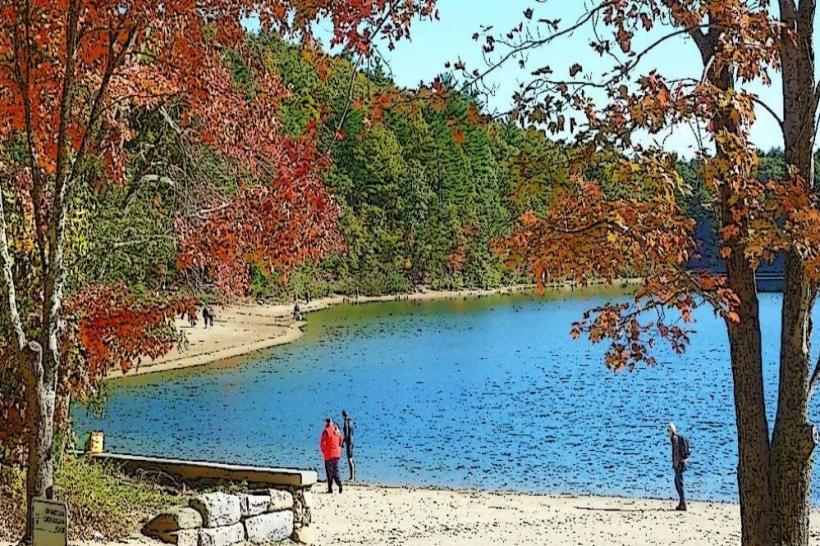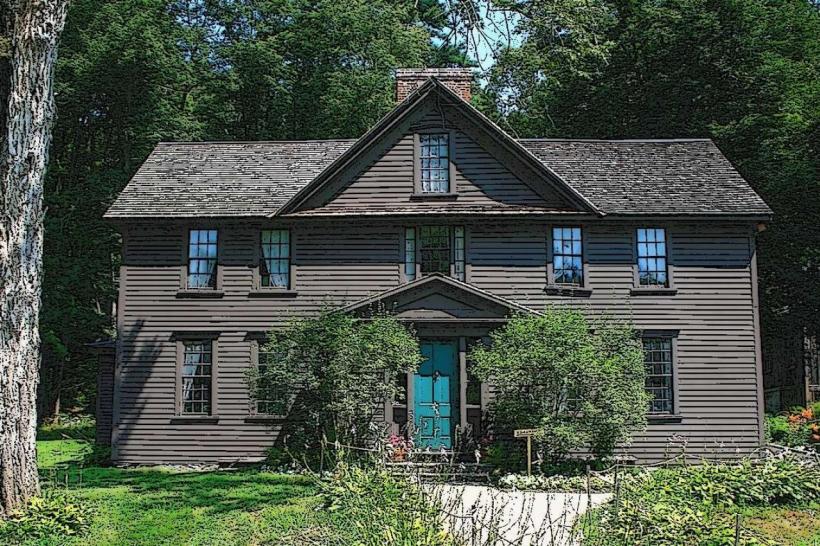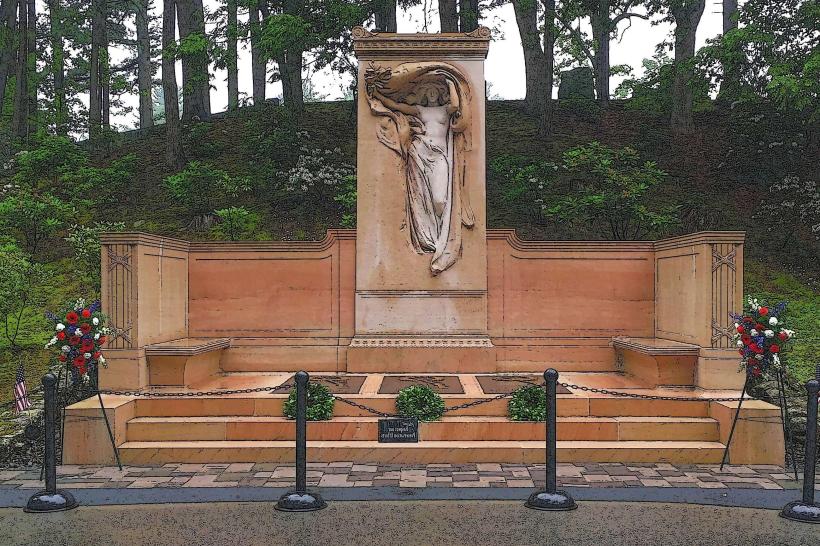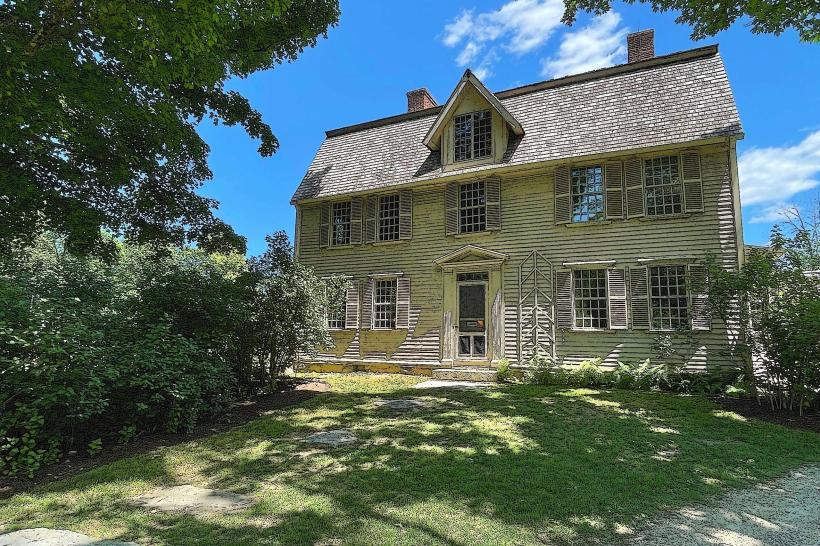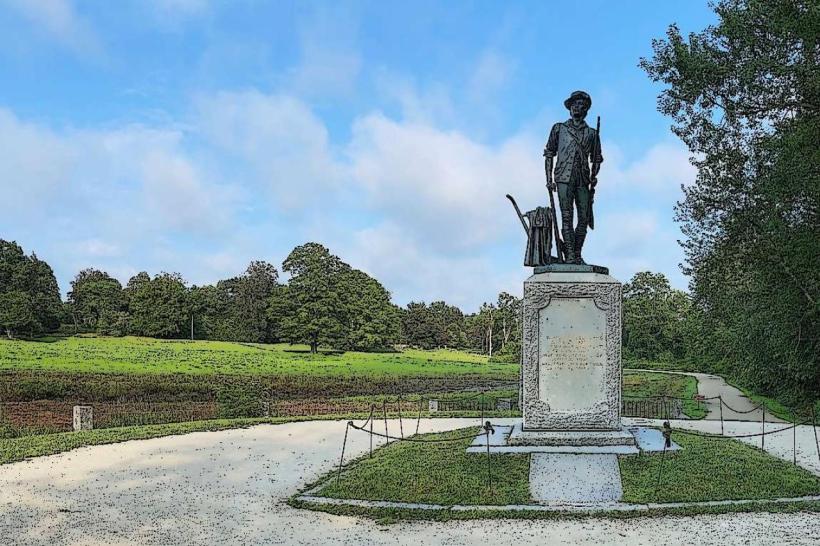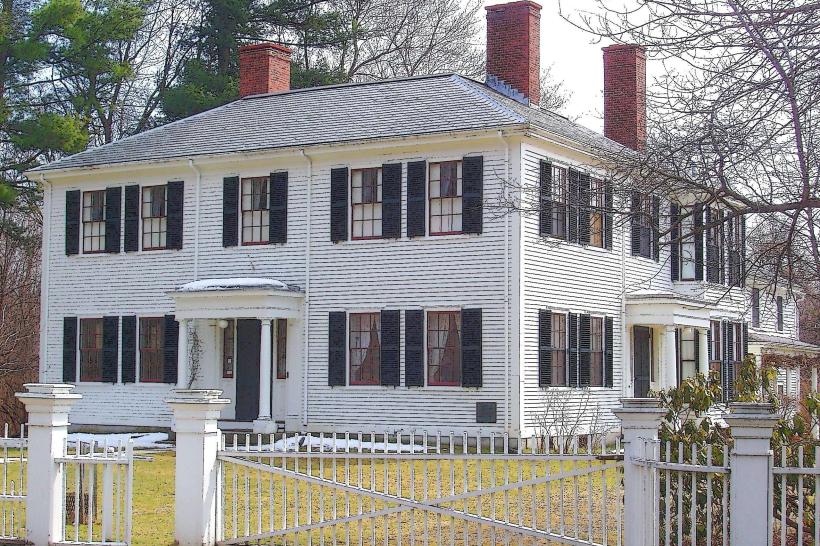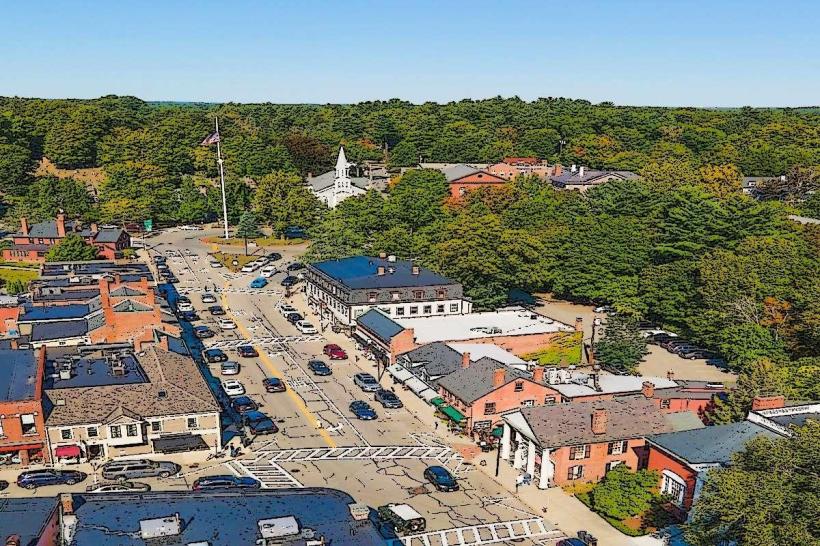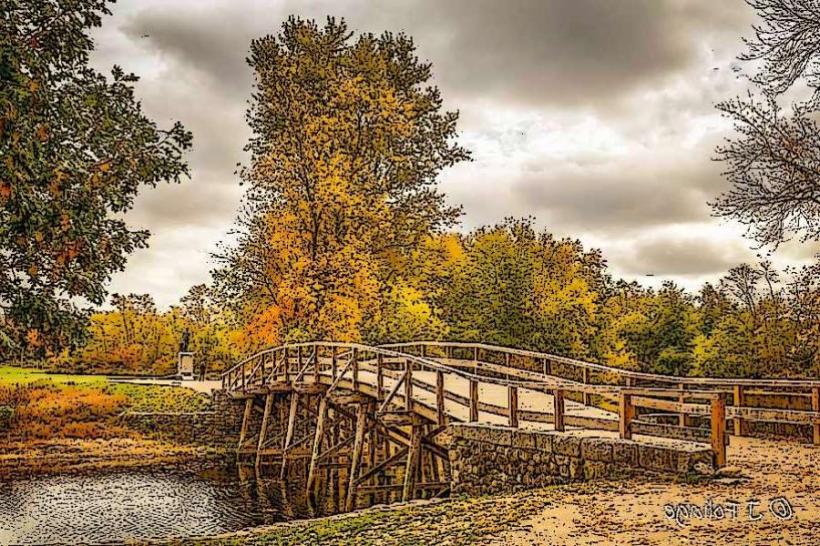Information
Landmark: Concord MuseumCity: Concord
Country: USA Massachusetts
Continent: North America
Concord Museum, Concord, USA Massachusetts, North America
The Concord Museum, located at 53 Cambridge Turnpike in Concord, Massachusetts, is a premier institution dedicated to preserving, interpreting, and celebrating the rich cultural and historical heritage of Concord and its influential role in American history. Founded in 1886, the museum has grown to become a key destination for understanding both the Revolutionary War era and the profound literary and philosophical movements that shaped the nation.
Historical and Cultural Context
Concord is famously known as the site of the first battle of the American Revolutionary War on April 19, 1775, and as the home of prominent 19th-century thinkers and writers including Ralph Waldo Emerson, Henry David Thoreau, Louisa May Alcott, and Nathaniel Hawthorne. The Concord Museum reflects this dual legacy by housing collections that span military history, colonial life, indigenous histories, African American heritage, and the transcendentalist movement.
Architectural Setting
The museum is housed in a historic brick building, centrally located near Concord’s town center and close to other significant landmarks. Over time, it has undergone renovations and expansions to accommodate growing collections and modern exhibition needs, balancing preservation of its historic fabric with accessibility and visitor engagement.
Collections and Exhibits
The Concord Museum holds over 40,000 objects, many of which are unique and nationally significant, offering a comprehensive narrative of Concord’s multifaceted history:
American Revolutionary War Artifacts: The museum features iconic objects such as the lantern from the Old North Church in Boston, famously associated with Paul Revere’s midnight ride, signaling the approach of British troops (“one if by land, two if by sea”). This artifact symbolizes Concord’s vital role in the Revolution and draws visitors into the story of America’s fight for independence.
Transcendentalism and Literary Heritage: The museum preserves items connected to Concord’s literary giants. It includes Ralph Waldo Emerson’s study, complete with original furniture and personal effects, offering intimate insight into the life of the transcendentalist philosopher. Artifacts related to Henry David Thoreau include possessions from his time at Walden Pond, where he conducted his experiment in simple living and wrote his seminal work, Walden. The museum also showcases works and memorabilia of other authors such as Louisa May Alcott and Nathaniel Hawthorne, providing a broader cultural context.
Decorative Arts and Daily Life: Exhibits include finely crafted 17th- to 19th-century furniture, ceramics, textiles, and metalwork that illustrate domestic life in colonial and early America. These collections highlight local craftsmanship and the aesthetic tastes of Concord’s residents over time.
Indigenous and African American History: Recognizing the importance of inclusive history, the museum has expanded its focus to represent Native American and African American narratives. These exhibitions explore the diverse experiences and contributions of these communities in Concord’s history, including their struggles and resilience.
Educational Programs and Public Engagement
The Concord Museum offers a broad spectrum of educational initiatives aimed at deepening public understanding and engagement:
Guided Tours: Specialized tours for school groups, families, and adult visitors provide tailored narratives focusing on specific themes such as the Revolution, literary history, or decorative arts.
Special Exhibitions: Rotating exhibitions explore contemporary research, new interpretations, and previously underrepresented stories, maintaining a dynamic visitor experience.
Lectures and Events: The museum hosts lectures, panel discussions, and public talks, often featuring historians, authors, and scholars who contextualize Concord’s place in larger American and global histories.
Community Programs: Interactive workshops, history happy hours, and family-oriented activities encourage local participation and foster connections to Concord’s heritage.
Visitor Experience and Amenities
Visitors to the Concord Museum can expect an immersive experience combining rich historical content with thoughtfully curated displays. The museum’s layout guides guests through Concord’s narrative chronologically and thematically, enhanced by multimedia presentations, artifacts, and personal stories that bring history to life.
The museum also features a well-stocked museum shop offering books, locally crafted gifts, educational materials, and memorabilia that reflect Concord’s unique cultural legacy.
Accessibility and Practical Information
The museum is generally open from Tuesday through Sunday, 10:00 AM to 4:00 PM, with closures on Mondays and certain holidays. Admission fees vary, with discounts available for seniors, students, and members of the military, while children under five are admitted free. The facility is wheelchair accessible and provides resources to accommodate diverse visitor needs.
Surrounding Historic Sites
The Concord Museum is ideally situated near several other landmark locations, allowing visitors to explore Concord’s history comprehensively:
Minute Man National Historical Park: Preserves and interprets the battlefields and events of April 19, 1775.
Sleepy Hollow Cemetery: The final resting place of many of Concord’s famous authors and thinkers.
Orchard House: The family home of Louisa May Alcott, now a museum celebrating her life and work.
Walden Pond State Reservation: The site of Thoreau’s famous experiment in nature and simplicity.
Summary
The Concord Museum offers a richly layered exploration of a town pivotal to America’s founding and cultural development. Through its extensive and varied collections, educational outreach, and engagement with multiple historical perspectives, it provides visitors with a profound understanding of Concord’s enduring impact on American identity, literature, philosophy, and freedom. It remains a vital cultural resource for scholars, residents, and tourists alike, preserving the stories that shaped both a nation and its intellectual heritage.

